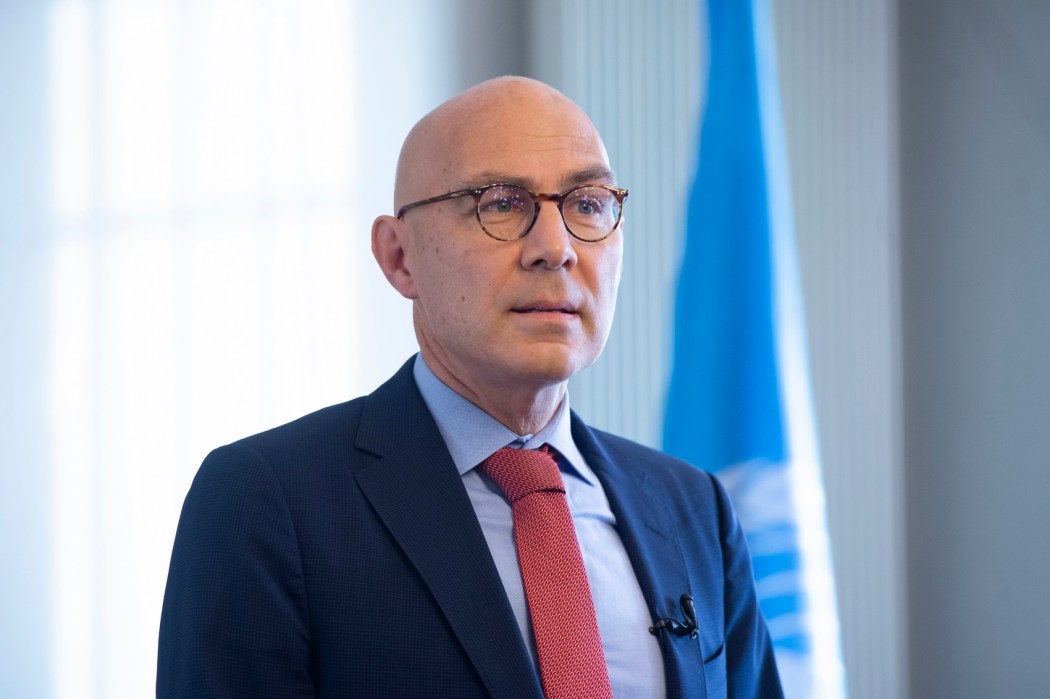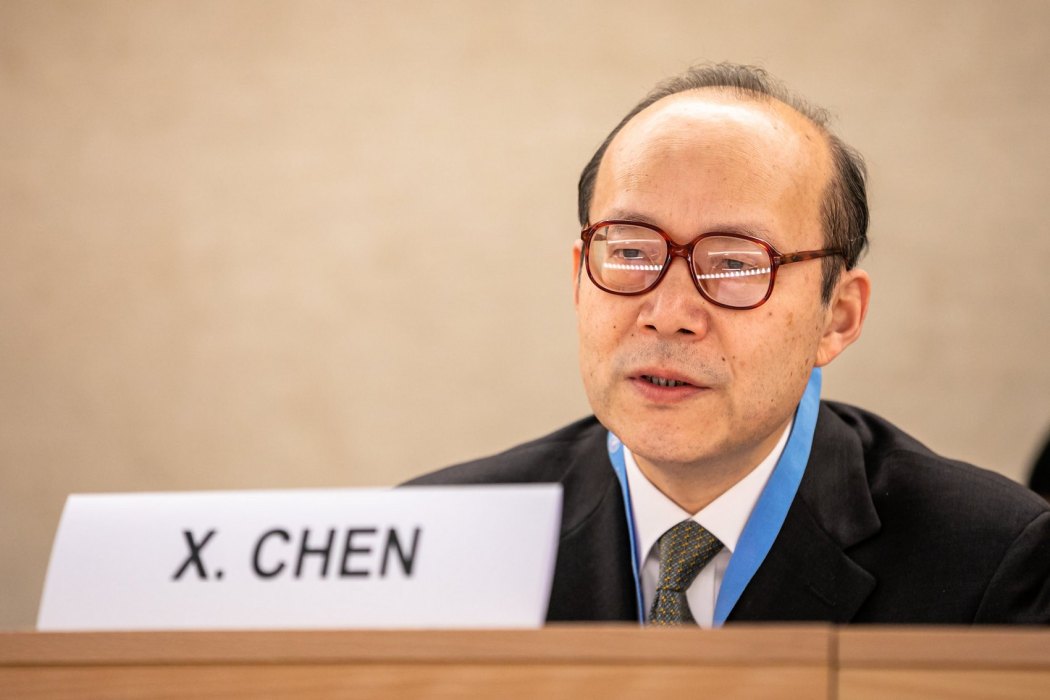UN human rights chief Volker Turk on Monday said China was violating fundamental rights in its Xinjiang and Tibet regions and called on Beijing to change course.

Turk, who has been criticised for not challenging China strongly enough over human rights, also asked Beijing to release rights defenders arrested under the “vague” offence of “picking quarrels and making trouble”.
Turk called on Beijing to implement recommendations made by his office and other human rights bodies “in relation to laws, policies and practices that violate fundamental human rights, including in the Xinjiang and Tibet regions”.
“I am engaging with the Hong Kong authorities on continuing concerns about national security laws,” he added, in his global update to the UN Human Rights Council.
In the northwestern Xinjiang region, China is accused of incarcerating more than one million Uyghurs and other Muslim minorities. Beijing vehemently rejects the charges.
A bombshell report by Turk’s predecessor Michelle Bachelet — released just minutes before her term ended in 2022 — cited possible “crimes against humanity” in Xinjiang.

The report, flatly rejected by China, detailed “credible” evidence of torture, forced medical treatment and sexual or gender-based violence — as well as forced labour.
But it stopped short of labelling Beijing’s actions in Xinjiang a “genocide”, as the United States and some Western lawmakers have done.
China denies allegations of abuse and insists it is running vocational training centres in Xinjiang which have helped to combat extremism and enhance development.
‘Baseless allegations’
Turk said his office was in talks with China on counter-terrorism policies, gender equality, minority protection, civic space, and economic, social and cultural rights.
“As we move forward, it is important that this dialogue yield concrete results,” he said.
Turk recognised China’s advances in development and in alleviating poverty, but urged that such policies be accompanied by reforms “to align relevant laws and policies with international human rights standards”.
“I particularly encourage revision of the vague offence of ‘picking quarrels and making trouble’ in Article 293 of the Criminal Law, and I urge the release of human rights defenders, lawyers and others detained under such legislation,” he said.
In response, China’s ambassador Chen Xu called for countries to “resist the practice of using human rights as a pretext to interfere in internal affairs” and stop “imposing one’s own values and development models on others”.
“We are willing to carry out dialogue with all countries on human rights, but resist baseless allegations against my country, by any country.”

In January, China received stinging criticism from Western countries during a regular review of its rights record at the United Nations, but other nations praised Beijing, including Russia and Iran.
Western countries highlighted a crackdown on civil liberties and a sweeping national security law imposed on Hong Kong in 2020 to quash dissent after pro-democracy protests.
Others voiced alarm at alleged efforts to erase cultural and religious identity in Tibet, and repression in Xinjiang.
China insisted it was making strides to improve the lives of its people, end poverty and protect rights. It has slammed critics for “politicising and weaponising” rights issues.
Dateline:
Geneva, Switzerland
Type of Story: News Service
Produced externally by an organization we trust to adhere to high journalistic standards.
Support HKFP | Policies & Ethics | Error/typo? | Contact Us | Newsletter | Transparency & Annual Report | Apps
Help safeguard press freedom & keep HKFP free for all readers by supporting our team

LATEST FROM HKFP
HKFP has an impartial stance, transparent funding, and balanced coverage guided by an Ethics Code and Corrections Policy.
Support press freedom & help us surpass 1,000 monthly Patrons: 100% independent, governed by an ethics code & not-for-profit.










